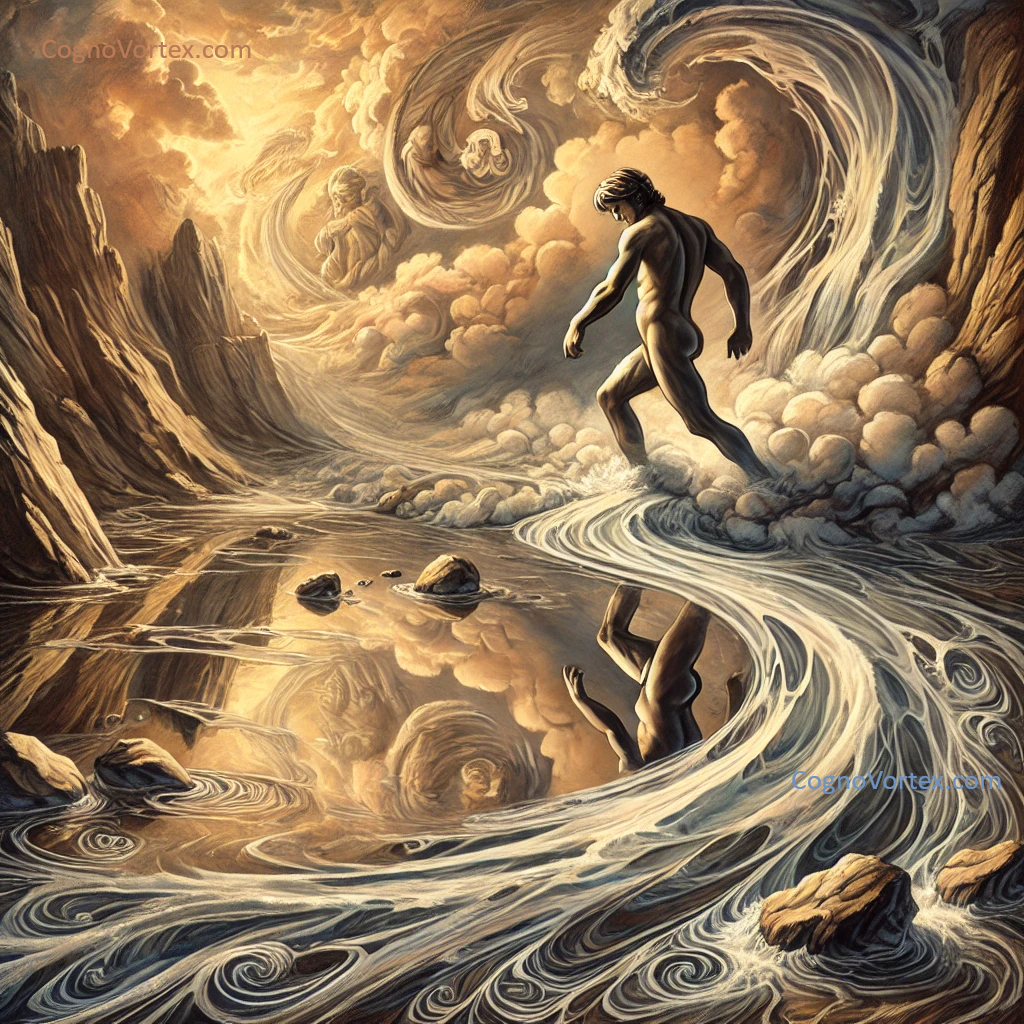Heraclitus’ insight that “No man ever steps in the same river twice, for it’s not the same river, and he’s not the same man” lays bare the futile quest for permanence in a world in constant flux. The river’s flow, always in motion, mirrors the human self—mutable, evolving, and as incapable of returning to a previous state as the waters to their source.
Yet, lurking beneath the river’s surface and the individual’s ceaseless metamorphosis is the longing for constancy, a paradox as universal as it is elusive. When the waters shift, only the bedrock remains in place, guiding its course yet untouched by it. So too the self, continually altered by time, desires to find some bedrock of identity, a solid core—unchanging beneath the currents of change. But herein lies the trap: clinging to an immutable self denies the reality of one’s nature as both observer and observed in the course of transformation. To cling to “what was” or “who I am” is to rail against the fact of impermanence, rejecting the very currents that carry us forward.
Heraclitus does not promise any fixed identity, nor does he suggest that stability is a myth; rather, he reveals that the search for stability itself is a shadow-play of sorts. The more one seeks to hold onto the “self,” the more it evades the grasp, slipping as quietly as river water between fingers. The human impulse to preserve identity fails not because identity is inherently elusive, but because the nature of identity itself is a state of “becoming,” impossible to capture without transforming it. Heraclitus’ observation is not a lament for what cannot be held but an invitation to witness what can only be felt in the moment of transition itself.
To imagine oneself stepping in the same river again is to imagine a static world that denies its own vitality. It assumes that to perceive a moment clearly, it must be “kept,” preserved against the erosion of time. But even memory, with all its exacting accuracy and distortion, cannot anchor us to a moment as it once was; it can only reflect our position in the current, looking both forward and back.
So, in each river, a new current; in each self, a new form—both inhabiting and discarding past selves with every step. Heraclitus’ river is no mere observation of change but a beckoning toward the deeper reconciliation between identity and transience. As long as we insist on finding a permanent self, we overlook the grace in becoming who we are only moment by moment. And when we see that “becoming” is itself a gift—not a flaw in the world’s design—we step freely, however briefly, into the river of life.
